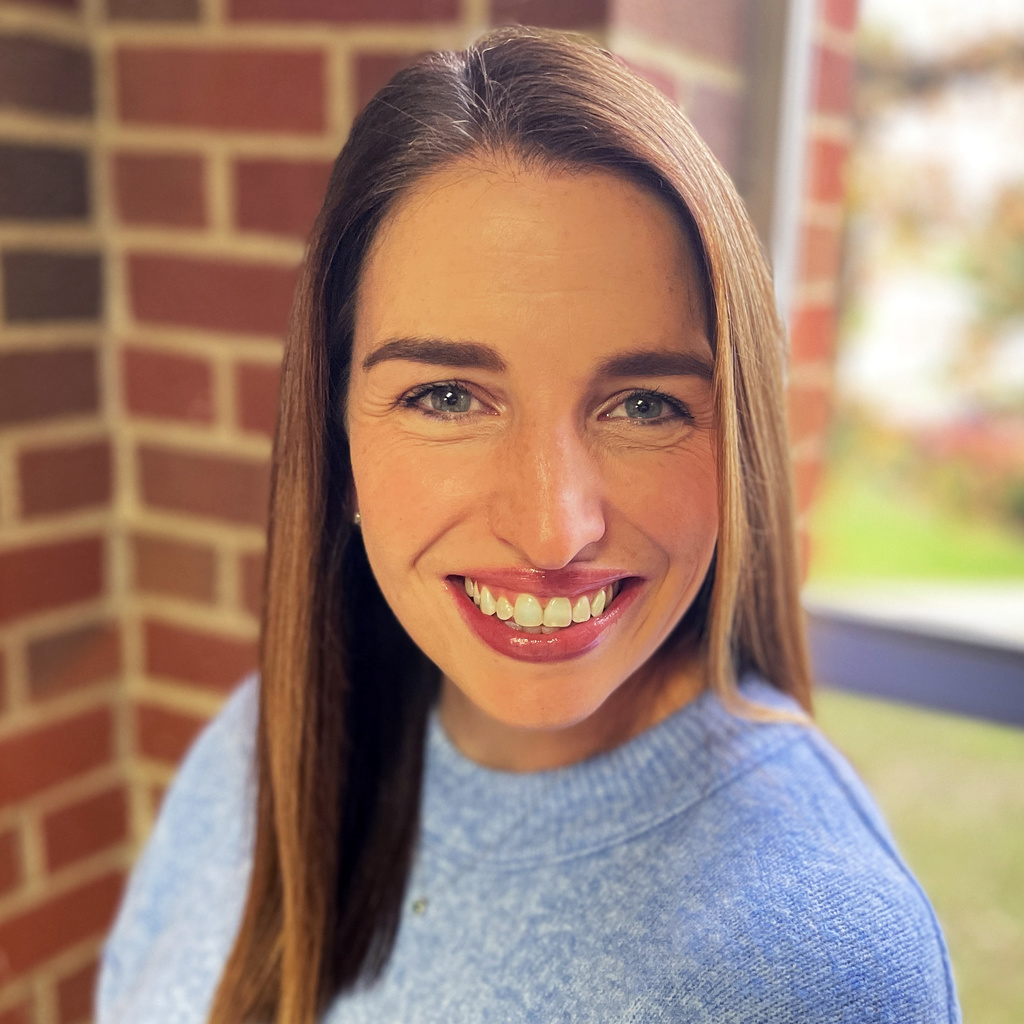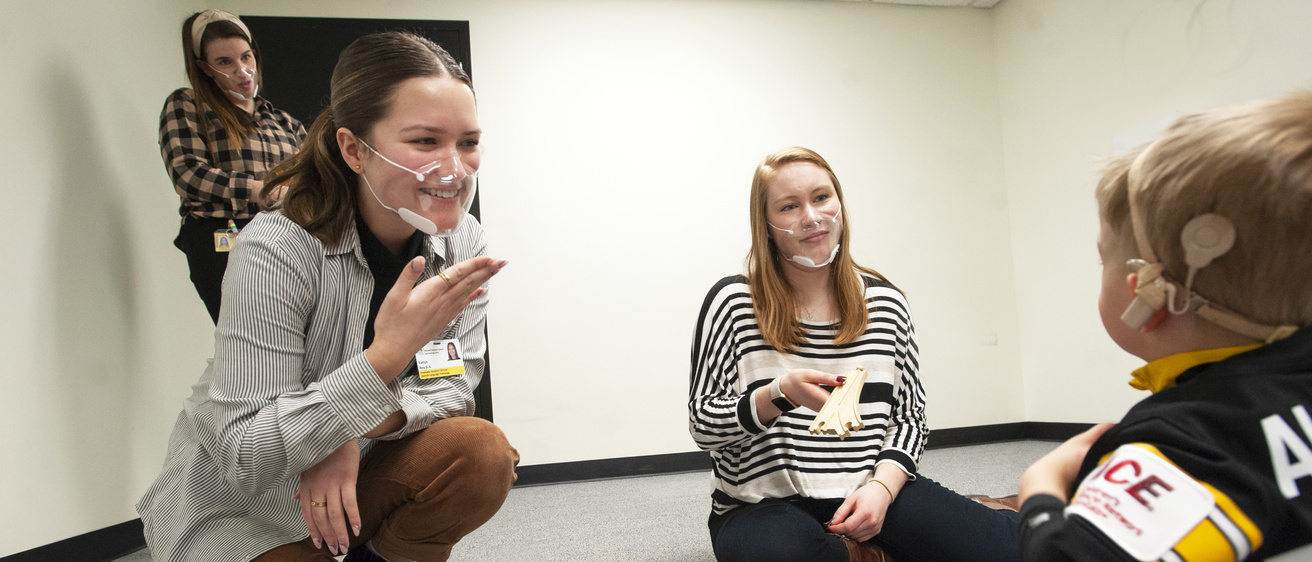Main navigation
Aural Rehabilitation (AR) includes the assessment and management of hearing loss in individuals who use hearing aids or cochlear implants. It is a patient-centered approach that focuses on reducing the impact an individual’s hearing loss might have on communication and quality of life.
The role of the audiologist in AR sessions is to check devices, provide counseling for the patient and their family, share additional resources for services, advocate for the needs of the patient and family, and support the speech-language pathologist in sessions.
At the UI Speech, Language, and Hearing Clinic, we provide AR services for children and adults.
Services for children
We provide individualized treatment for auditory/speech/language difficulties for children secondary to hearing loss. Specific services for children depend on the current age of the child, the age of onset of the hearing loss and when it was discovered, the type and severity of the hearing loss, and the age at which amplification was introduced. The aural rehabilitation plan is also influenced by the communication mode the child is using.
Families and caregivers also receive training on using effective communication strategies at home and troubleshooting equipment and technology.
An intensive program, Communication Explorers, is offered to 3-6 year olds each summer.
Services for adults
Once adult clients have been fitted with cochlear implants or hearing aids, the journey toward better communication has started. Communication training—or aural rehabilitation—sessions greatly improves the new user's amplification effectively.
Families and caregivers are encouraged to attend sessions for new amplification users. Family members and/or significant others will learn about hearing loss and how it is remediated, and also how to improve their own communication skills to facilitate communication. Family members are told about the benefits and limitations of hearing aids and cochlear implants, and also their roles in communication breakdowns and how those can be avoided or repaired.
Rehabilitative services may be provided to individuals or in groups. For many people, a group provides peer support during the adjustment to amplification. Support groups are offered several times each year without charge, and graduate student clinicians and their mentors guide these sessions.
Frequently asked questions
How can I find out more about the AR services in the clinic?
Download a brochure that more fully describes what we can offer the person in your life seeking AR services.
How is an adult AR session different from a child AR session?
Like AR for children, auditory training is the main focus. Information regarding understanding hearing loss, speechreading, communication strategies, and assistive listening devices is also provided. AR sessions are designed for the patient and their communication goals.
What kind of AR sessions are offered at the UI Speech, Language, and Hearing Clinic?
UI Speech, Language, and Hearing Clinic provides both individual and group AR sessions. Contact the clinic for more information to decide which session would best suit you or your family’s needs.
How long are AR sessions?
Most AR sessions last about 60 minutes, which includes listening checks, speech training, and patient/family education.
Am I required to attend my child’s AR zoom session?
A caregiver is required to attend the Zoom session. This could be a parent, grandparent, nanny, etc. The role of the adult is to ensure technology is functioning and to provide support when needed to reinforce the child.
What do I need for a telehealth appointment?
For all sessions, a stable internet connection and Zoom capabilities are needed. For child AR sessions, toys and listening equipment may be necessary. However, the AR team will reach out to you before the session to let you know what is needed.
Clinical coordinator

